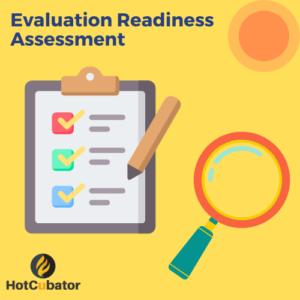
Evaluation is a critical component of project management practice, as it allows organizations to determine the effectiveness of their programs and initiatives and make informed decisions about how to allocate resources and improve outcomes. However, choosing the right evaluation approach is essential to ensure that the results are accurate, reliable, and meaningful.
Specific goals and objectives
One of the most important considerations when selecting an evaluation approach is the specific goals and objectives of the program or initiative being evaluated. Different programs and initiatives will have different objectives, and the evaluation approach should be tailored to the specific goals of the program. For example, if the goal of a program is to improve student achievement in a particular subject, then an evaluation approach that focuses on measuring student performance on standardized tests would be appropriate.
Target population of the program
Another important consideration when selecting an evaluation approach is the target population of the program or initiative. Different population groups may have different needs and characteristics, and the evaluation approach should be designed to take these differences into account. For example, a program designed to serve low-income families may require a different evaluation approach than a program designed to serve high-income families, as the needs and characteristics of the two groups may be quite different.
Resources and constraints
In addition to the goals and objectives of the program and the target population, the evaluation approach should also take into account the resources and constraints of the organization. Different organizations may have different levels of funding, staff, and other resources, and the evaluation approach should be designed to be feasible within the constraints of the organization. For example, a program that is implemented on a large scale may require a more complex evaluation approach than a program that is implemented on a small scale, as the former will likely require more resources to collect and analyze data.
Appropriate evaluation methods
Once the goals, objectives, target population, and resources of the program have been considered, the next step is to select the appropriate evaluation methods. There are many different evaluation methods that can be used, including surveys, interviews, focus groups, and observational studies. Each method has its own strengths and limitations, and the selection of the appropriate method will depend on the specific goals and objectives of the program, the target population, and the resources of the organization.
Data analysis
Data analysis is another important aspect of evaluation. The results of the evaluation should be analyzed in a way that allows for meaningful conclusions to be drawn about the effectiveness of the program or initiative. This may involve the use of statistical techniques, such as chi-squared tests or regression analysis, to determine the significance of the results.
Ethical considerations
In addition to the technical aspects of evaluation, there are also ethical considerations that must be taken into account. These include issues related to informed consent, confidentiality, and data security. Organizations should ensure that they have policies and procedures in place to protect the rights and privacy of program participants and other stakeholders.
Presentation of the evaluation report
Finally, the results of the evaluation should be disseminated to stakeholders in a way that is clear, concise, and actionable. This may involve the production of a final evaluation report, as well as presentations and other forms of communication that are tailored to the specific needs and interests of stakeholders.
In conclusion, choosing the right evaluation approach is essential to ensure that the results of an evaluation are accurate, reliable, and meaningful. The goals and objectives of the program or initiative, the target population, resources, and ethical considerations are all important factors to consider when selecting an evaluation approach. By taking the time to choose the right approach and executing the evaluation effectively, organizations can make more informed decisions about how to allocate resources and improve outcomes.
Further reading:
https://www.betterevaluation.org/methods-approaches/approaches
https://www.oecd.org/dac/evaluation/daccriteriaforevaluatingdevelopmentassistance.htm








